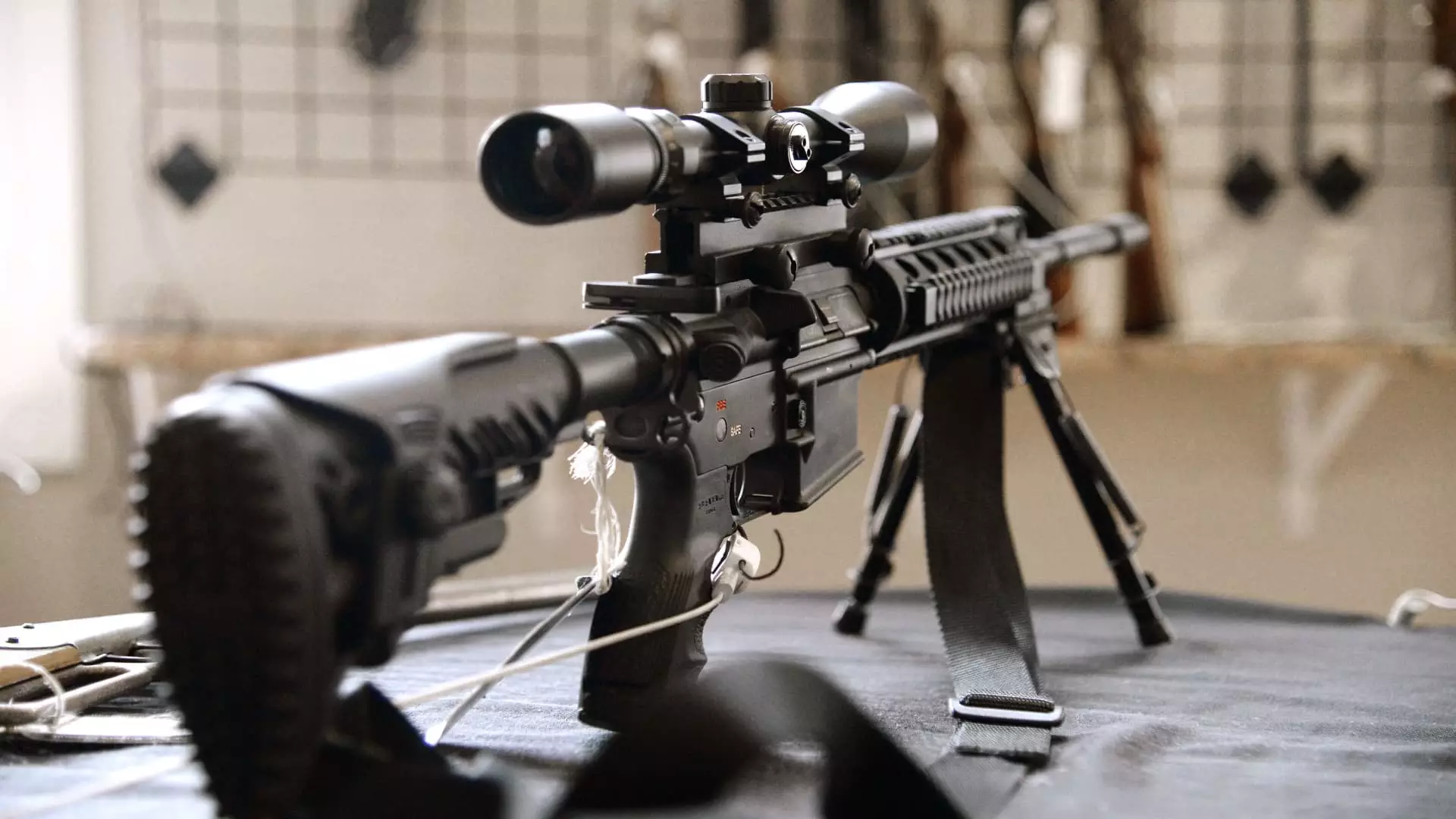In a move that is both tension-filled and transformative, Rhode Island’s Democratic-controlled House has passed legislation aimed at banning the sale and manufacturing of many semiautomatic rifles, often labeled as assault weapons. As this measure now heads to Governor Dan McKee’s desk, it not only indicates Rhode Island’s commitment to enhancing gun safety but raises critical questions about the efficacy and ambition of such legislation. Advocates have long demanded stricter gun control, especially in a state like Rhode Island that has historically been marred by indecision on the matter.
Many are heralding this development as necessary—an overdue effort to clean the streets of high-powered firearms linked to mass shootings across America. Yet, it’s also crucial to note that this legislation falls short of a comprehensive ban that includes possession, reflecting a hesitance to tackle the root of gun violence effectively. Rhode Island’s attempt may feel like a progressive step, yet it stands on shaky ground when compared to other states with robust measures.
The Political Divide: Skepticism from All Corners
The legislation faces both overt opposition and subtle criticisms from diverse corners. On one side, Republicans like Senator Thomas Paolino argue that the ban unfairly targets law-abiding citizens rather than addressing the true cause of gun violence—criminals. This perspective is emblematic of a broader narrative advanced by gun rights advocates who insist that restrictions infringe upon personal freedoms without solving the problem at hand. Alongside this skepticism, gun control activists such as David Hogg have described the bill as the “weakest assault weapons ban in the country,” indicating a shared frustration that the proposed law does not go far enough to protect public safety.
It is alarming that amid fierce debates and substantial public support for effective gun control, an opportunity to enact meaningful legislation may slip through our fingers. The language deployed by Hogg and other activists mirrors a collective desire for more than just incremental changes. It underlines the sentiment that any law that fails to encompass possession alongside sale is inherently flawed. When a bill is perceived as weak, it doesn’t just satisfy critics—but rather emboldens those who seek to undermine any progress made.
A Critical Analysis: The Weakness of Half-measures
While on the surface, the passage of the bill might appear as a victory for gun control advocates, it is also emblematic of the persistent half-measures that plague legislative efforts in the United States. The notion that simply restricting the sale of assault weapons while allowing their possession provides a solid foundation for public safety is misguided. Questing for a compromise yields laws that may not encapsulate the urgency or scope of the issue. Rhode Island’s historical reluctance to take a firm stand demonstrates a cyclical pattern of disappointment for those genuinely invested in gun reform.
Moreover, the broader implications extend beyond state borders. Federal restrictions complicate the landscape further, potentially creating loopholes that enable continued sales of assault rifles from states with looser regulations. The ongoing dialogue underscores a pressing need for a unified stand against gun violence, signaling both local and national urgency for genuine change.
Looking Ahead: The Future of Gun Control in the U.S.
The question remains: will Rhode Island’s hesitant legislation become a model of progress or simply another hiccup in the long fight for gun control reform across the nation? As more states engage in similar discussions, the outcomes will undoubtedly influence national perspectives on gun legislation, especially given the spotlight on the Supreme Court’s stance regarding such bans. A conservative court poses an ever-present threat to the viability of these reforms, as the ruling on Maryland’s recent assault weapons prohibition indicates a treacherous path for similar laws.
Amid these mounting pressures, it is vital for advocates to strategize effectively and rally support that transcends partisan boundaries. As the debate unfolds, it’s clear that commitment to a stronger, more encompassing ban on assault weapons will determine the safety of communities across not just Rhode Island, but the entire country. By fostering a culture of deeper legal scrutiny and public discourse surrounding not just control, but responsible ownership and advocacy for collective well-being, we can hope to derive solutions that truly resonate with the urgency of the moment.

